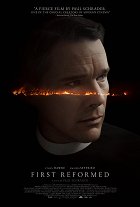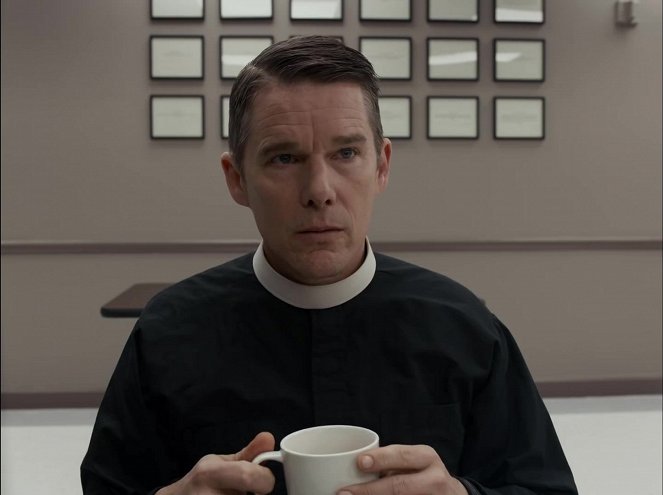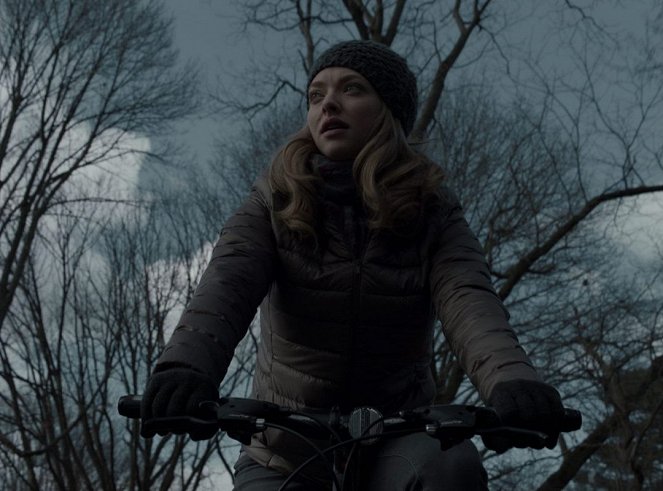Directed by:
Paul SchraderScreenplay:
Paul SchraderCinematography:
Alexander DynanComposer:
Brian WilliamsCast:
Ethan Hawke, Amanda Seyfried, Philip Ettinger, Michael Gaston, Cedric the Entertainer, Victoria Hill, Bill Hoag, Elanna White, Kristin Villanueva, Erica Fae (more)Plots(1)
Reverend Ernst Toller (Ethan Hawke) is a solitary parish priest at a small church in upstate New York, which is on the cusp of celebrating its 250th anniversary. Now more of a tourist attraction catering to a dwindling congregation, it has long been eclipsed by its nearby parent church, Abundant Life, with its state-of-the-art facilities. When a pregnant parishioner (Amanda Seyfried) asks Reverend Toller to counsel her husband, a radical environmentalist, Toller is plunged into his own tormented past and finds himself questioning his own future and where redemption might lie. With the pressure on him beginning to grow, he must do everything he can to prevent everything spiraling out of control. (Picturehouse Entertainment)
(more)Videos (1)
Reviews (7)
The Czech version of the title says it all: Despair and Hope. Especially since the hope in this case is rather sporadic, borderline nonexistent. The thing is that the movie indirectly hits at the Church, which is represented by a depressed priest portrayed by Ethan Hawke. He is doing quite a good job of it. The film even has a number of interesting ideas and the right atmosphere for those who revel in sadness… but what happens at the end of the movie, that’s simply a bit off.
()
A film like from a long-gone era: slow, thoughtful and interpretatively challenging, with the voiceover of the main character, a static camera and carefully composed shots, but at the same smartly current with the topics of environmental crisis and suicidal activists. The Czech title is exceptionally good this time because it reflects the parallel development of the two lines of thought with which Reverend Toller struggles, whose development and current importance is subordinated also to the level of the style, and that lead to a gripping conclusion and an ending that made my heart beat like a racehorse. An old-school experience supported by great music and fantastic actors – Hawke’s sober performance deserves an award, Amanda is well cast after a long time and fully exploits her potential to be someone’s “darling” for her angel’s ayes and overall appearance. If it was an hour longer, it would still keep me hooked and curious. 90%
()
This film tells the remarkable story of an internally torn priest, played with gusto by Ethan Hawke. The plot initially drags on terribly, especially when one realizes that there's hardly any positive thought to be found here. It is just a kind of creeping calm before the storm. The final twenty minutes of the film completely blew my mind, so I can forgive Paul Schrader for the romantic ending. Actually, why not? After all, Mary was probably the only possible salvation for Ernst, and Ethan Hawke put all his physical acting into that last minute. All of a sudden, he was completely irresistible. (75%)
()
God’s silence and the lamentation of the world like a swamp where man vainly treads the bottom. At the end of his career, Schrader returns to his roots. First Reformed resonates not only with the concept of Taxi Driver, but also its creator’s long-time admiration for Robert Bresson, whom he approximates not only in the level of moral motifs, but also with an austere, economical style that fully unleashes the tension and drama within the characters. More than forty years ago, Taxi Driver shocked audiences with its depiction of a world so depraved that an impulsive maniac who is himself rotten with malice and twisted morality could emerge as a hero. In his latest film, Schrader shows a world and existence that is terrifying not due to imminent danger, but due to the anxiety and hopelessness it induces in us when we stop thoughtlessly living in it and instead try to look at it rationally. The melancholy of First Reformed raises the central character’s inner pain, both emotional and physical, while that pain becomes the catalyst for the paradoxical process of finding new faith for the hero, who has dedicated his life to serving God. It may seem at times that Schrader offers exceedingly easy solutions, but it is the same superficial deception as in the conclusion of Taxi Driver, where even seemingly soothing normalcy only obscures the frightfulness and extreme nature of everything that came before. This time, it could seem that Schrader will be satisfied with another Bresson allusion, but in the context of this terrifying world, it must be mercifully cut into the closing credits. Unlike the problems Travis Bickle saw, the current problems will not disappear with the squeeze of a trigger or even with a kiss.
()



Ads